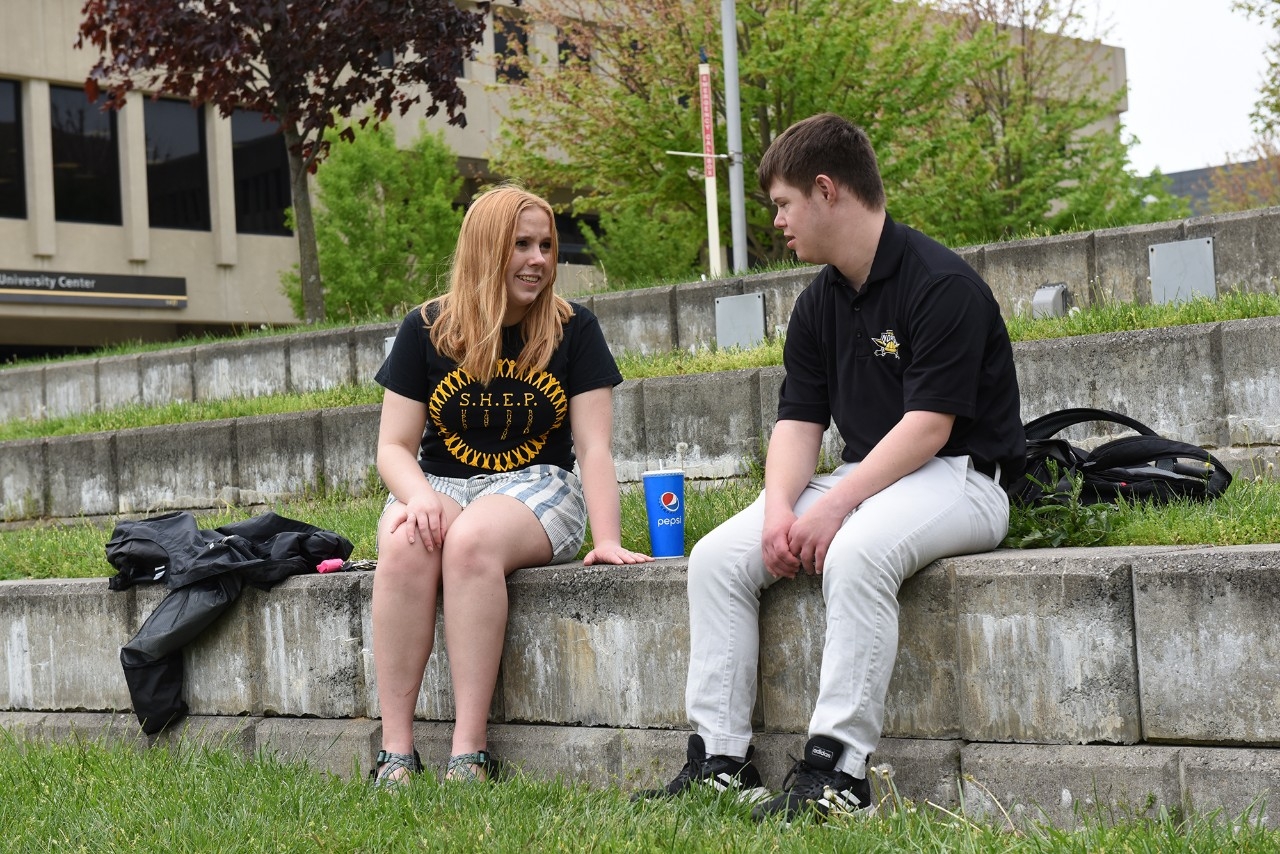
College is the logical next step after high school for many young people, including students with intellectual disabilities. NKU SHEP (Supported Higher Education Project) gives NKU students the opportunity to access all that a college campus has to offer. It's more than just going to class. Benefits of participating in campus life can include developing new friendships, being a part of a learning community, trying new experiences, and participating in job internships. Skills that can be gained include self-advocacy, problem solving, and new areas of independence, in addition to skills related to a course of study.
Students in the SHEP program contribute to our culture of connection by bringing their unique perspective to the college campus. When students with disabilities fully participate in higher education, real learning takes place on many different levels. As students, faculty, staff and the entire campus community engage in courses and activities together, everyone gains a greater sense of understanding.
This initiative is not unique to NKU. It is part of a broader initiative within the Commonwealth of Kentucky and a national movement spearheaded by ThinkCollege and the Institute of Community Inclusion.
Comprehensive Transition Programs (CTP) are federally recognized degree, certificate, or non-degree programs for students with intellectual disabilities that:
If students with intellectual disabilities are attending a CTP, they are able to use federal financial aid to help pay the cost of attendance.
You can reach the program coordinator, Emily Hellmane via e-mail at hellmane2@nku.edu or phone at 859-572-6149